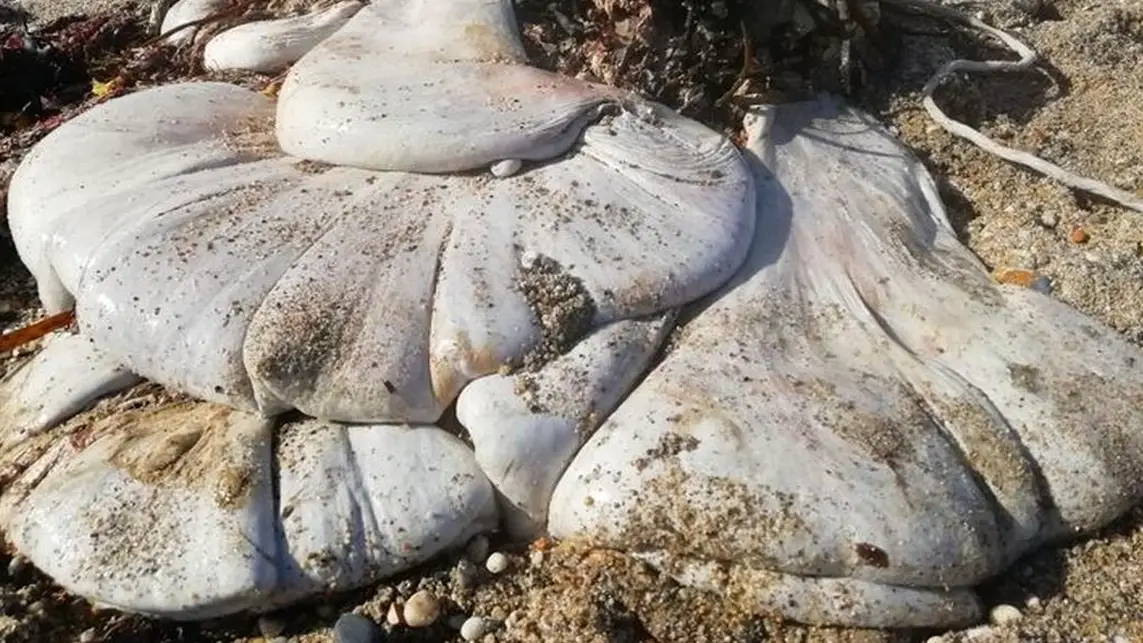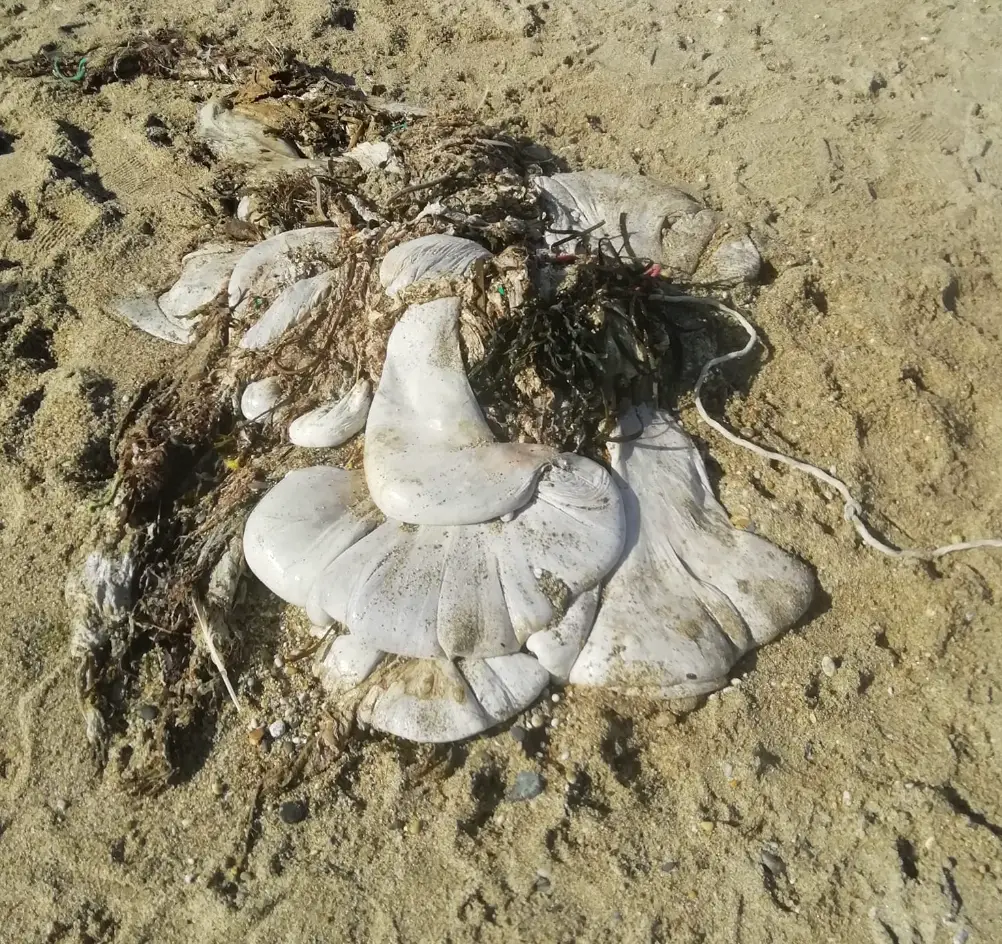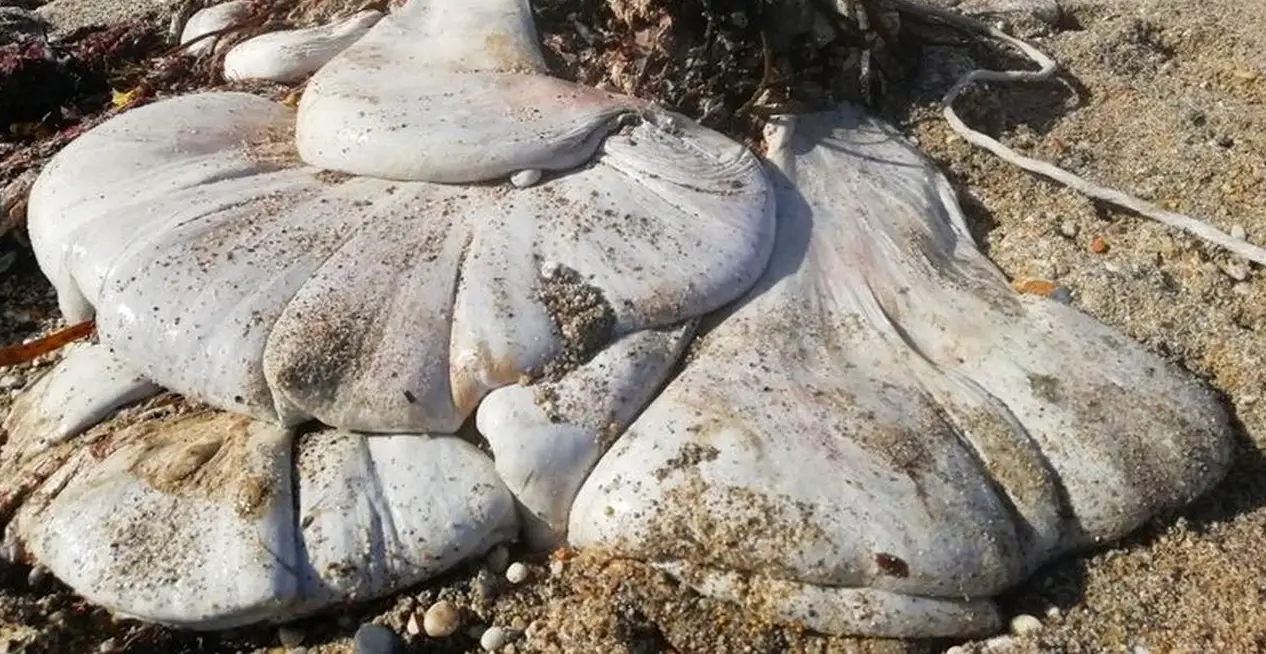
*WARNING: CONTAINS IMAGES OF A HUGE FACELESS WHITE BLOB*
A huge faceless white blob has been discovered on a UK beach, leaving people baffled.
Helen Marlow was out walking her dog on Marazion beach, near Penzance in Cornwall, when she stumbled upon the mysterious white mass, topped with a clump of seaweed.
Advert
Of course, spotting a huge faceless white blob on a British beach is nothing out of the ordinary - but this blob was different.
"I discovered it on the beach at Marazion, at around midday as the tide had gone out," she told CornwallLive.
"I had no idea what it was, it just looked like a huge mass of something organic.
"My dog went wild, it seemed quite fresh with no distinctive tears or damage and had no nasty smell. I really had no idea."

After being unable to identify any revealing characteristics, she decided to post some snaps on the British Marine Life Study Society's Facebook page, to see if the people had any answers.
And it turned out they did have answers - lots of different answers.
One person commented: "Looks like a weather balloon that's filled with sand."
Another said: "Wow what a magnificent find, looks like a placenta to me, be interesting to see what the inside looks like."
While a third added: "Go back and cut it open!"
Helen did not go back and cut it open, understandably; however, experts eventually established it was in fact a whale's gut or stomach.

Marine conservation officer Abby Crosby said: "Local marine biologists thought it could have been whale placenta, which would have been a very exciting discovery if it meant that a whale was born off the coast of Cornwall.
"However, experts at the UK Cetacean Strandings Investigation Programme (CSIP) identified that it was more likely a gut or stomach from a whale.
"We often get marine mammals such as dolphins, whales, and porpoises - collectively known as cetaceans - sadly washing up dead on our beaches at various stages of decomposition.
"So, this unfortunately wasn't an entirely unusual discovery but it is a reminder that these animals live along our coastline and can become stranded."